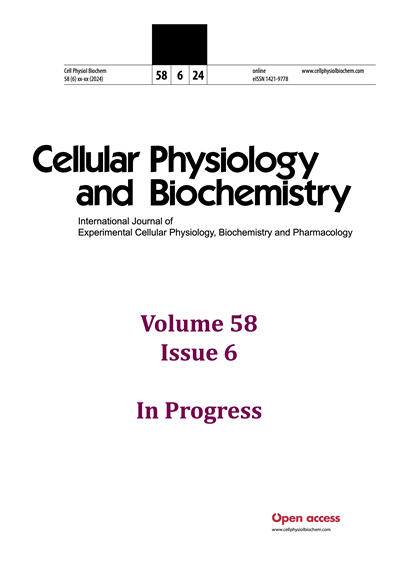癌症中的衰老机制:癌细胞衰老的积极和消极方面
IF 2
Q3 CELL BIOLOGY
引用次数: 0
摘要
细胞衰老被认为是正常分裂细胞的一种特征,这将它们与没有分裂限制的癌细胞区分开来。然而,最近的研究表明,衰老也可能发生在癌细胞中。化疗、放疗、端粒酶活性的抑制、DNA损伤的诱导、肿瘤微环境的改变、衰老相关蛋白的调节、氧化应激、炎症或表观遗传失调都可能导致癌细胞衰老。似乎诱导癌细胞衰老可以显著影响肿瘤进展的抑制,但在某些类型的癌症中,它可以影响其侵袭性。此外,考虑到这一过程的治疗意义,必须考虑癌细胞衰老的积极和消极方面。考虑到潜在的危害,了解在特定条件下诱导衰老的分子机制是至关重要的。在未来,癌细胞的衰老可能有助于在现代癌症治疗策略中使用这一特性。本文章由计算机程序翻译,如有差异,请以英文原文为准。
Mechanisms of Senescence in Cancer: Positive and Negative Aspects of Cancer Cells Senescence
Cell senescence was considered an attribute of normal dividing cells, which distinguishing them from cancer cells that do not have a division limit. However, recent studies show that senescence could also occur in cancer cells. Cancer cell senescence could occur as a result of chemotherapy, radiation, inhibition of telomerase activity, induction of DNA damage, changes in the tumor microenvironment, regulation of senescence-related proteins, oxidative stress, inflammation, or epigenetic dysregulation. It seems that the induction of senescence in cancer cells could significantly affect the inhibition of tumor progression, but in some types of cancer, it can affect their invasive character. Furthermore, considering the therapeutic implications of this process, it is essential to consider the positive and negative aspects of cancer cell senescence. It is crucial to understand the molecular mechanisms that induce senescence under specific conditions, considering the potential hazards. In the future, the senescence of cancer cells may contribute to using this property in modern cancer treatment strategies.
求助全文
通过发布文献求助,成功后即可免费获取论文全文。
去求助
来源期刊
CiteScore
5.80
自引率
0.00%
发文量
86
审稿时长
1 months
期刊介绍:
Cellular Physiology and Biochemistry is a multidisciplinary scientific forum dedicated to advancing the frontiers of basic cellular research. It addresses scientists from both the physiological and biochemical disciplines as well as related fields such as genetics, molecular biology, pathophysiology, pathobiochemistry and cellular toxicology & pharmacology. Original papers and reviews on the mechanisms of intracellular transmission, cellular metabolism, cell growth, differentiation and death, ion channels and carriers, and the maintenance, regulation and disturbances of cell volume are presented. Appearing monthly under peer review, Cellular Physiology and Biochemistry takes an active role in the concerted international effort to unravel the mechanisms of cellular function.

 求助内容:
求助内容: 应助结果提醒方式:
应助结果提醒方式:


